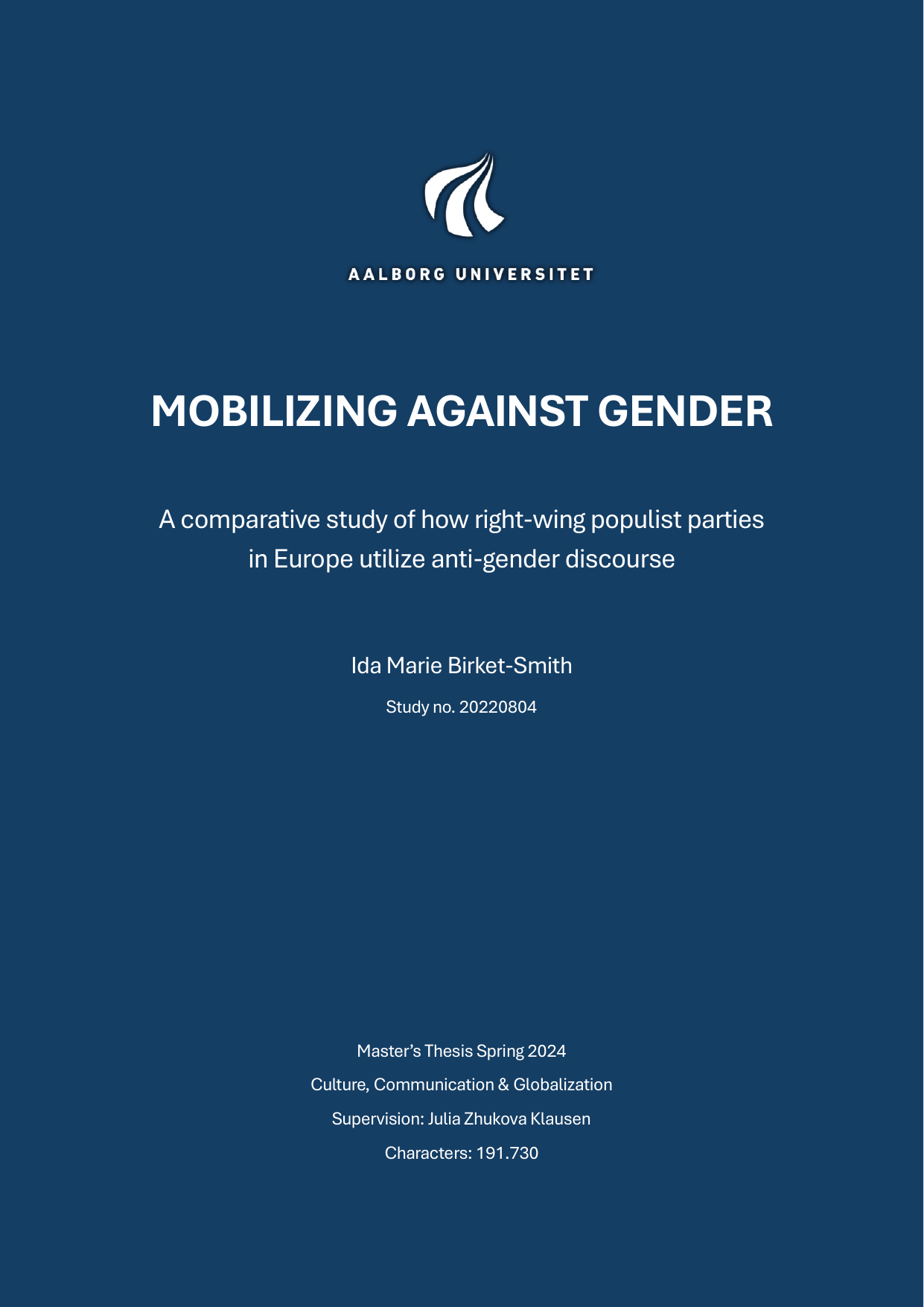
Mobilizing against gender: A comparative study of how right-wing populist parties in Europe utilize anti-gender discourse
Author
Term
4. term
Publication year
2024
Submitted on
2024-05-30
Pages
87
Abstract
This thesis examines the rise of anti-gender mobilization in Europe and its connection to right-wing populist actors. While populism has gained vast scholarly attention in recent years, its relation to gender remains narrow and understudied. Nonetheless, gender seems to be an omnipresent feature in right-wing populist discourse, and the rise of anti-genderism is closely related to the rise of right-wing populism. The aim of this thesis is to study the intersection between anti-genderism and right-wing populism in Europe, and to contribute to the current gap in research within the field. Through a comparative case study of two populist parties in Europe, this study seeks to answer how right-wing populist parties are mobilizing anti-gender language and ideology in their political discourse. A comparative study of populist parties in Germany and Poland has been selected to investigate if anti-gender discourse occurs across borders and despite differing gender norms and political contexts, and to showcase the possible variety of this phenomenon across Europe. By conducting a Critical Discourse Analysis, this study analyses party material, and parliamentary debates of the Alternative für Deutschland party in Germany and the Law & Justice party in Poland to identify anti-gender discourse in their political communication, understand how it intersects with their populist discourse, and finally to explain, based on a theoretical framework, these discourses as a part of the broader social context. The theoretical framework includes contributions from discourse theory, gender theory and a conceptualization of ‘anti-gender’, and populism. This study concludes that anti-gender discourse is mobilized by the right-wing populist parties in both cases. The anti-gender discourse is linked to the parties’ populist discourse and incorporated as a part of the parties’ populist agendas. The parties construct issues related to anti-genderism such as the traditional heteronormative family, the biological binary understanding of gender, and a common enemy referred to as “gender ideology” and include them as a part of their populist discourse consisting of the antagonistic positioning between “the people” and “the elite”. Furthermore, the study finds a striking similarity between the cases and how the parties construct anti-gender in their discourse. Despite political and cultural differences, a strong anti-gender discourse with similar discursive features is present within both parties, which points towards anti-genderism as a transnational phenomenon manifesting in diverse settings. Based on these findings, I argue that anti-gender mobilization in Europe and beyond should be examined from a transnational perspective to understand its complex strategies and discourses, which travel across borders. Finally, I discuss which possible consequences the mobilization of anti-genderism by political parties can have for the progress made on gender equality in the region.
Keywords
Populisme ; Anti-gender ; Køn ; Højre-populisme ; Diskurs
Documents
